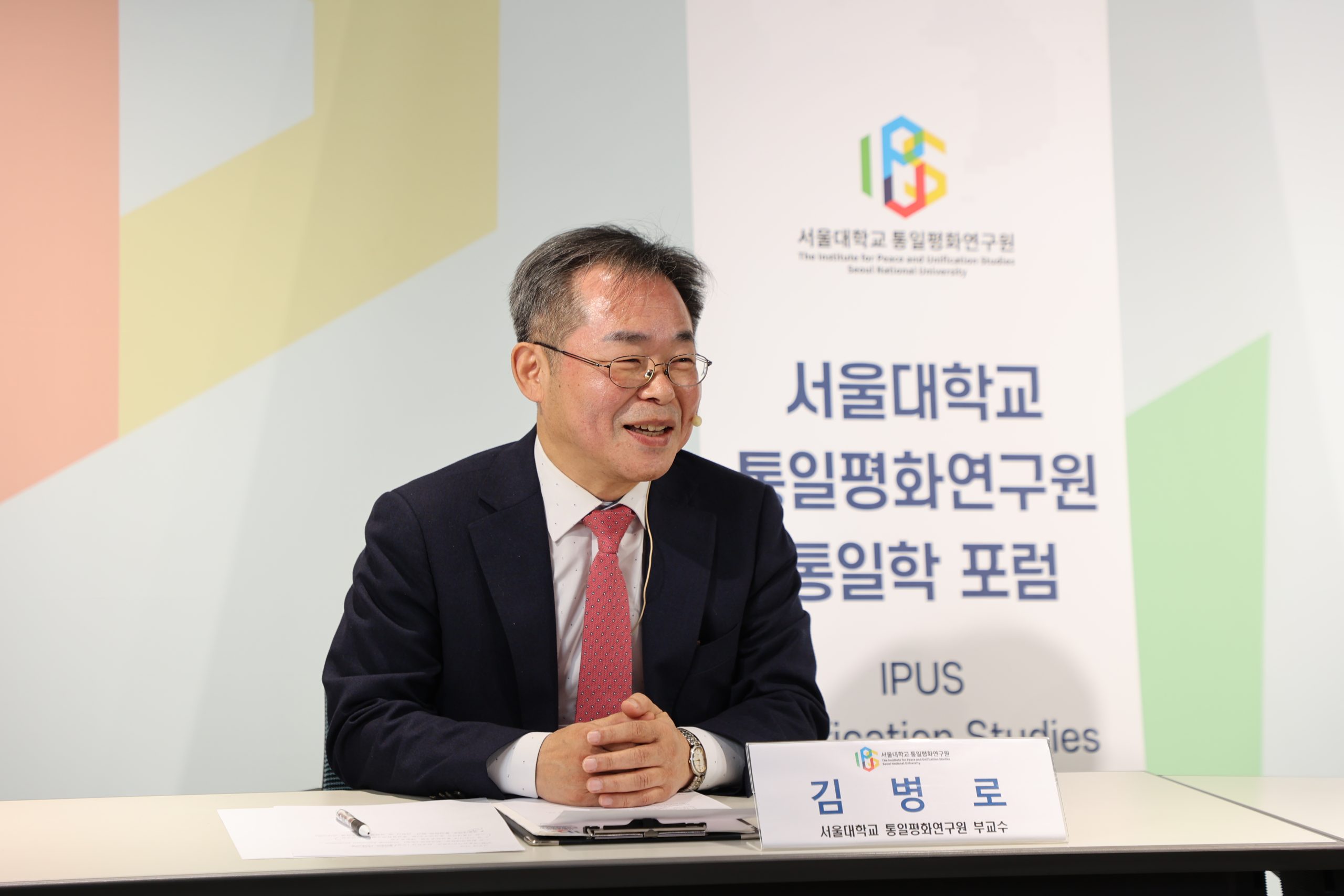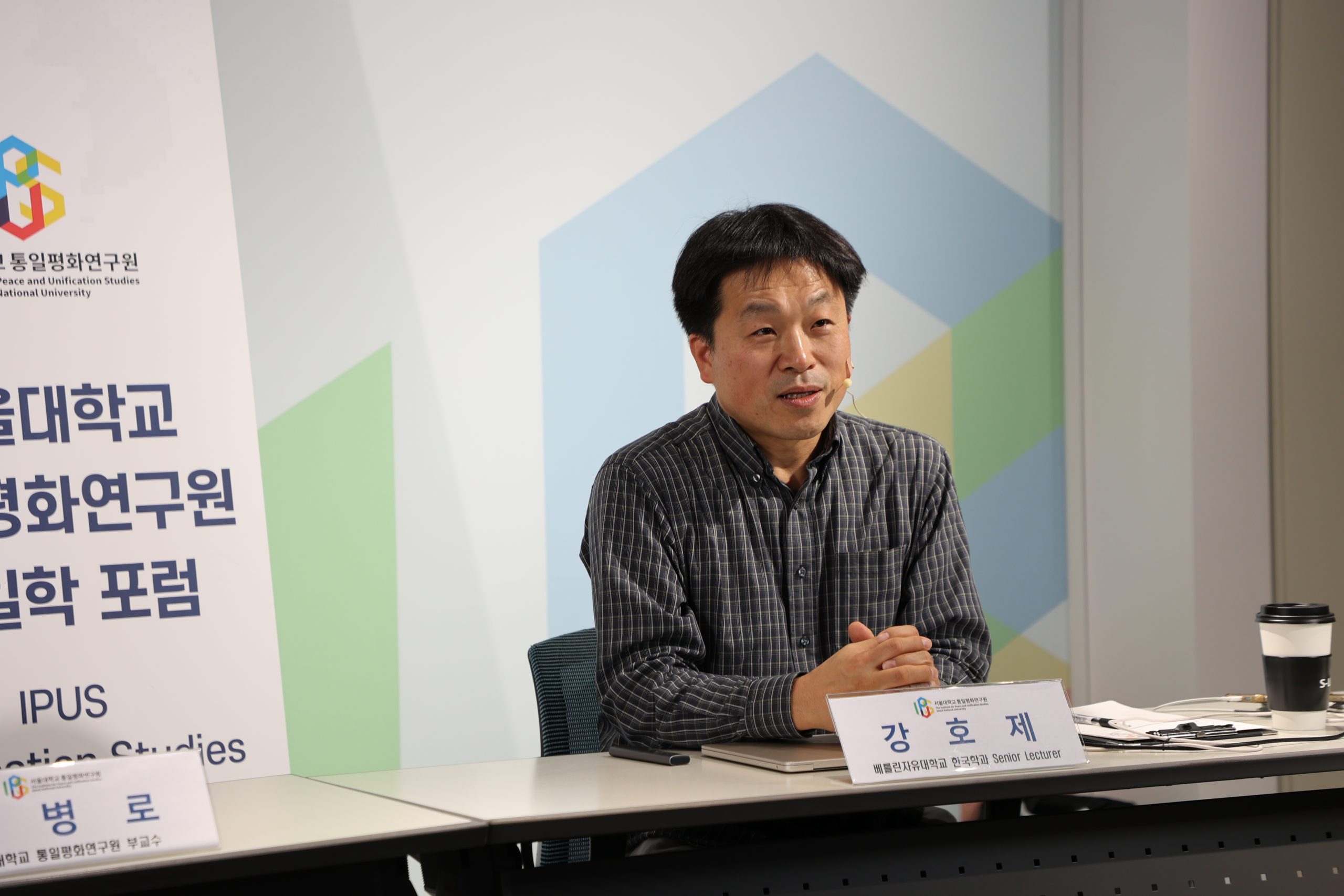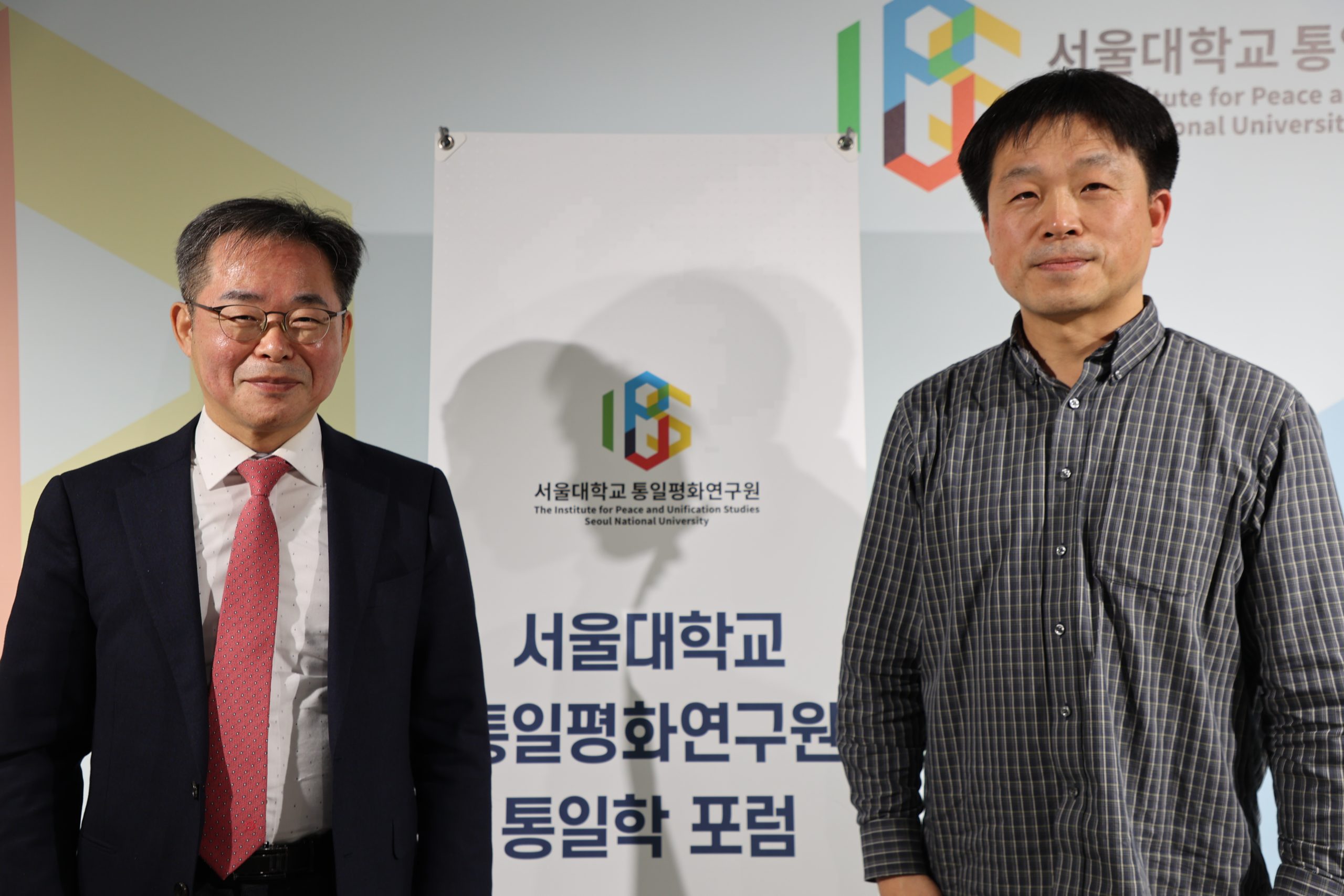[106th Unification Studies Forum] North Korea’s science and technology policy and regional innovation system
Date: Wednesday, December 4, 2024, 15:00 – 17:00 (KST)
Venue: Online video conference (ZOOM)
Speaker: Kang, Ho-jye (Senior Lecturer, Berlin Free University),
Moderator: Kim, Philo (Associate Professor, IPUS)
Topic: North Korea’s science and technology policy and regional innovation system
The Institute for Peace and Unification Studies at Seoul National University(IPUS at SNU) hosted the 106th Unification Studies Forum on Monday, November 18, 2024, under the theme of “North Korea’s science and technology policy and regional innovation system”. The Unification Studies Forum is an expansion and reorganization of the Unification Policy Forum, which was held 75 times between 2006 and 2020, and is now in its 106th edition. The forum was moderated by Professor Kim who opened the forum with a welcome speech.
Dr. Kang Ho-jye focused on North Korea’s science and technology policy and regional innovation system, with particular emphasis on Kim Jong-un’s “20×10 Policy.” This policy, first announced by Kim Jong-un in his January 2024 speech at the Supreme People’s Assembly, outlines a ten-year plan to build 20 “modernized factories” annually across various cities and counties. As North Korea’s first notable regional development policy, the initiative aims to bring about comprehensive transformations in local economies, extending beyond the modernization of a few factories. It emphasizes the economic transition of cities and counties, targeting nationwide development rather than being limited to Pyongyang or major regions. To implement this ambitious plan, North Korea has mobilized Party resources and military personnel and established new organizations dedicated to overseeing the “Regional Industry Construction Guidance” to systematically push the project forward.
The foundation of the 20×10 Policy lies in the regional economic development strategy presented at the 8th Party Congress in August 2021. Kimhwa County in Kangwon Province was selected as the first test case due to its severely underdeveloped state. The county suffered extensive damage from flooding in 2020 and had almost no industrial infrastructure as it is located in a mountainous area. Instead of merely restoring the flood-damaged areas, North Korea rebuilt over 100 houses and factories, completely overhauling the local economy. Newly constructed factories included facilities for food production, clothing, daily necessities, and paper manufacturing. Among these, the paper factory was established to address the demand for educational development. The Kimhwa County case demonstrated a model of self-sufficiency at the local level, with raw materials and labor provided locally and technical support offered by the central government. In 2023, North Korea began efforts to expand this model nationwide, using Kimhwa County’s success as a reference point.
Kim Jong-un has taken personal responsibility for the success of the 20×10 Policy, an exceptional move for a North Korean leader to directly declare accountability for a specific project. To address the challenges of resource and labor shortages, the policy involves large-scale mobilization of military personnel and Party resources. Military factories and technologies are being repurposed to develop the machinery and techniques needed for the projects, showcasing a spin-off of military technologies into civilian applications.
The 20×10 Policy represents a shift toward locally centered economic development, combining self-sufficient economic systems with a technology support model. Through this policy, North Korea aims to achieve nationwide balanced economic growth and revitalize local economies. The success of the initiative is expected to play a critical role in North Korea’s long-term economic strategy and the establishment of a regional innovation system.
In conclusion, Dr. Kang emphasized that North Korea’s efforts to integrate scientific and technological innovation into regional development reflect a conscious attempt to evolve into an innovation-driven country. He stressed that this endeavor should not be overlooked.























